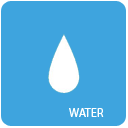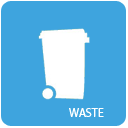Eco-Home themes
The Eco-home programme aims to help householders reduce their household bills while at the same time helping to protect the environment. The programme focuses on four key household themes; waste prevention, water conservation, energy conservation and sustainable transportation.
These pages provide householders with the most up-to-date tips, advice and relevant links on ways to reduce waste, conserve water and energy around the home and to use more sustainable travel options. It also includes different action plans for each of the four themes which suggest various ways in which you can incorporate the tips and advice into your day-to-day life, thus helping you to save money around the home. To access these action plans just select the relevant theme.
Energy

The home is one of the largest users of energy in Northern Ireland. It accounts for almost a quarter of the energy used in the country. This is even more than the transport, agriculture or services sectors.
Energy efficiency within the home is aimed at achieving the required level of comfort at least cost to the householder, while minimising damage to the environment. Every time we switch on a light, cook a meal or turn up the thermostat we use energy.
Whilst the use of energy within the home is an essential part of daily life, an excessive amount of energy is wasted or lost within many of our dwellings, and this is often due to:
- A lack of insulation (including insufficient or poorly installed insulation).
- Inefficient heating and hot water systems.
- Unnecessary ventilation.
- Energy inefficient electrical appliances.
- Poor practices in the use of energy (for example items left on standby mode when not in use).
To find out more, go to the main Energy section.
Water
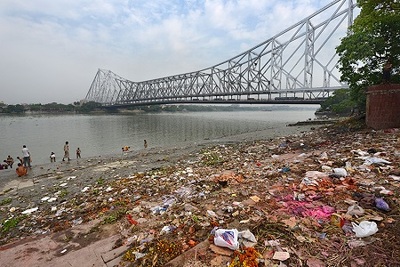
More people = more demand for fresh water
The amount of fresh water that is available to humans is actually quite limited and as the world population continues to increase the more stress is placed on this precious resource.
97% of the water in the world is sea water and therefore not suitable for drinking. Approximately 2% of the water is held in ice leaving only 1% of the world’s water available for human consumption.
It might be difficult to understand why we need to conserve water here as we seem to have so much of it! But it is vital to conserve and protect the water we have, especially if we want our grandchildren to have clean, safe drinking water. The costs of providing clean water can be quite high and the process can be difficult to manage.
Where does our drinking water come from?
Water moves in a cycle from the earth to the air and back to the earth again in a process known as the water cycle: while on the earth, water for drinking comes from two sources:
- Groundwater from underground aquifers.
- Surface water from streams, rivers or lakes is pumped to the earth's surface from wells.
This water usually requires little treatment before drinking because it has already been filtered through sand and rock as it settles into the earth. Surface water requires filtration to remove any silt, sand or organic matter collected by the water as it moves from one area to another. Chemicals are added to speed up the process that nature uses to clean water.
All water here is either piped in from a local water supply or comes from an underground well. All of the water delivered to our homes is drinkable (potable) - even the water we use to flush our toilets and wash our clothes. Northern Ireland Water (formerly Water Service) is the sole provider of water and sewerage services in Northern Ireland. As water usage goes unchecked, there are more demands put on water treatment systems, as well as sources for municipal water supplies. By reducing the demand for water in our homes, the costs for water treatment will be less and there will be fewer threats to the natural water sources (lakes, rivers and underground aquifers) in our environment.
To find out more, go to the main Water section.
Waste
Waste creates one of the main areas of expenditure for local councils in Northern Ireland. The amount of municipal waste generated in Northern Ireland has stabilised in recent years and significant progress has been made in moving away from landfill to more sustainable waste management solutions such as recycling and composting. However challenges in relation to waste generation and management still remain.
Over 1 million tonnes of waste are generated in Northern Ireland each year; this equates to 1.75 tonnes per person. This mostly consists of waste coming from households, commercial activities, industry, agriculture, construction and demolition projects, mining and quarrying activities and from the generation of energy. Due to the high quantity of waste that is generated in Northern Ireland it is essential that it is managed in such a way that it is not harmful to human health or the environment.
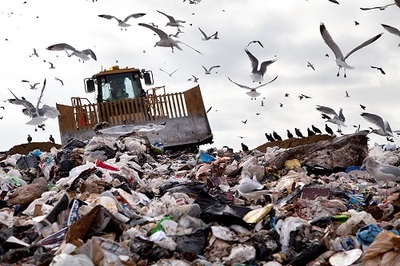
Waste Prevention
The most effective way to deal with waste is through a Waste Prevention approach. This approach focuses on changes in lifestyles and in production and consumption patterns. By not generating waste, we can eliminate the need to handle, transport, treat and dispose of waste. We can also avoid having to pay for these services.
Towards Resource Management: The Northern Ireland Waste Management Strategy 2006 - 2020 is set firmly in the context of sustainable development policy and other key government policy documents and initiatives, such as the Regional Development Strategy, the Investment Strategy for NI, the Energy Strategy and the Review of Public Administration, as well in the context of EU legislation, as a key driver of waste management policy and practice.
Waste Hierarchy
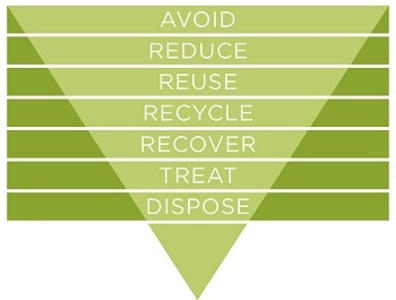
The debate surrounding waste management has put forward a method of positive action with regard to waste known as the Waste Hierarchy. Waste prevention is at the top of the waste hierarchy and is Northern Ireland’s first priority for waste management. It includes all activities that reduce the amount of waste entering the collected waste stream - for example:
- Avoiding waste generation;
- Reducing the quantity and hazardous nature of waste at source; and
- Reusing products before they enter the waste stream.
Summary of the Waste Hierarchy
- Prevention/Minimisation: Before any purchases are made, consider whether they are even needed. This can be done through clever shopping such as buying in bulk, using refills, etc.
- Reuse: This is where a product is bought and sold on with the same purpose. E.g. clothes banks, jam jars - there is no change in use.
- Recycling: Waste is processed into a new product often not related to the initial item. E.g. glass, plastics and composting.
- Energy Recovery: Taking waste/part of a waste stream and using it as a fuel. E.g. making paper logs, waste-to-energy plants.
- Disposal: Currently around 53.4% of all household waste collected by Northern Ireland's Councils is sent to landfill; although this is an improvement on past figures there is a long way to go before we meet all the waste targets set by the EU.
To find out more, go to the main Waste section.
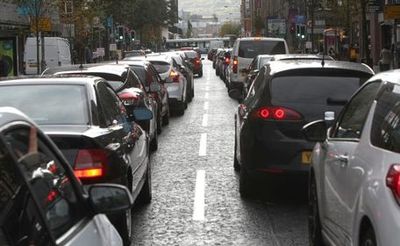
Transport
Noise, smelly fumes, frustrating traffic jams, road works and stress - just your average car journey. But there is more at stake than uncomfortable travelling: transport is responsible for around 21% of Northern Ireland's greenhouse gas emissions. Small particles emitted by vehicles using petrol or diesel are linked to asthma, and nitrogen oxides cause respiratory diseases and can produce smog at ground level. We are becoming increasingly car-dependent with car numbers rising accordingly over the years. There are many ways that you can help to reduce your transport impact on the environment and we have included many of these in this section.
To find out more, go to the main Transport section.



